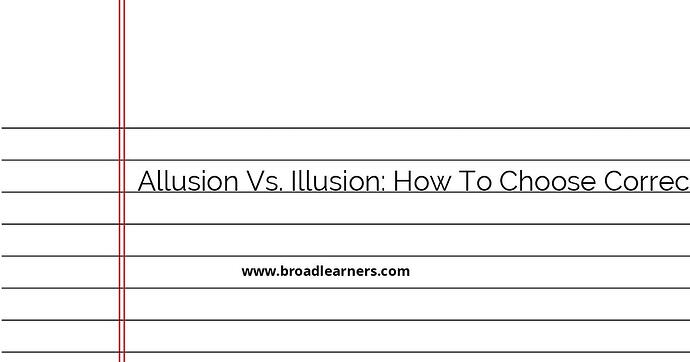Understanding the difference between 'allusion' and 'illusion' can be tricky due to their similar spellings. However, these two words have distinct meanings and usage in the English language.
Let's break down the differences between 'allusion' and 'illusion' to help you choose the correct term:
Allusion
'Allusion' refers to a passing reference or a mention of something. It is a subtle or indirect reference to a person, event, or piece of literature. When someone makes an allusion, they are hinting at or referencing something without explicitly stating it.
For example, if someone says, "She has the wisdom of Einstein," they are making an allusion to Einstein's intelligence without directly mentioning his name.
Here are a few sentences using 'allusion':
- Her speech contained an allusion to Shakespeare's famous sonnets.
- The movie made a clever allusion to a classic novel.
- His painting was full of biblical allusions.
Illusion
On the other hand, 'illusion' refers to a false idea or belief, often based on perception or misinterpretation. It is something that appears real or true but is, in fact, deceptive or misleading. Illusions can often deceive the senses and create false impressions.
For example, a mirage in the desert is an illusion because it appears like water but is not real.
Here are a few sentences using 'illusion':
- The magician created the illusion of a disappearing act.
- Her happiness was shattered when she realized it was only an illusion.
- The grandeur of the palace was just an illusion; inside, it was in ruins.
Remembering the distinction between 'allusion' and 'illusion' will help you choose the right word based on whether you are referring to a subtle reference or a deceptive perception.
Did I miss anything? Respond below
